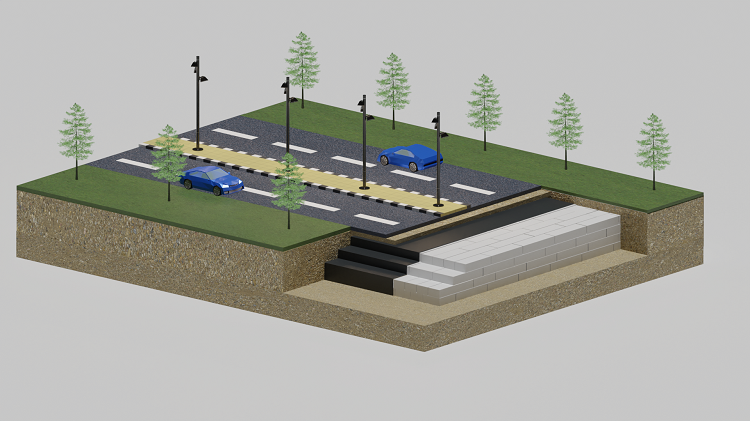Description
Innovative Solutions for Road Construction Over Poor Soils
Road construction over poor soils poses unique challenges that require innovative solutions. In situations where weak soils, delicate utilities, or wetlands are present, traditional construction methods may not be suitable. However, advances in engineering technology have led to the development of inventive strategies for building roads in such challenging environments. One such solution is the use of geofoam for road construction, which offers a viable alternative to dense soils and heavy fill materials.
One of the primary advantages of geofoam for road construction is its robust compressive strength. Despite its lightweight nature, geofoam can support heavy loads, including highway traffic, without undergoing significant deformation or settlement. This makes it a reliable and durable choice for road construction over poor soils. By distributing the load more evenly and reducing stress on weak soils, geofoam helps to maintain the integrity of the road.
Moreover, it streamlines the construction process as it is easy to handle without specialized equipment. The construction process involves compacting a sand layer at the base, placing the Geofoam with staggered joints, and optionally adding a separation layer to enhance pavement performance and durability. Subsequently, the pavement system, consisting of chosen fill, road base gravel, and a driving surface made of asphalt or concrete, is built on the top layer.
Efficient Road Widening with Plastbau Geofoam
Road construction over poor soils poses unique challenges that require innovative solutions. In situations where weak soils, delicate utilities, or wetlands are present, traditional construction methods may not be suitable. However, advances in engineering technology have led to the development of inventive strategies for building roads in such challenging environments. One such solution is the use of geofoam for road construction, which offers a viable alternative to dense soils and heavy fill materials.
One of the primary advantages of geofoam for road construction is its robust compressive strength. Despite its lightweight nature, geofoam can support heavy loads, including highway traffic, without undergoing significant deformation or settlement. This makes it a reliable and durable choice for road construction over poor soils. By distributing the load more evenly and reducing stress on weak soils, geofoam helps to maintain the integrity of the road.
Moreover, it streamlines the construction process as it is easy to handle without specialized equipment. The construction process involves compacting a sand layer at the base, placing the Geofoam with staggered joints, and optionally adding a separation layer to enhance pavement performance and durability. Subsequently, the pavement system, consisting of chosen fill, road base gravel, and a driving surface made of asphalt or concrete, is built on the top layer.











